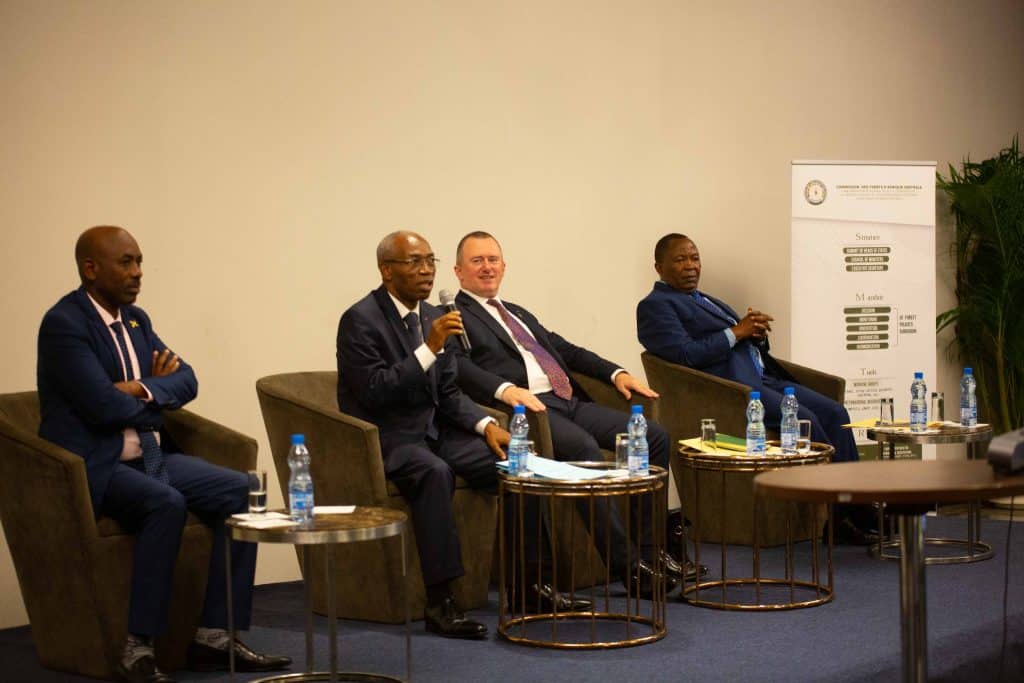The extraordinary meeting of the Council of Ministers of the Central African Forestry Commission (COMIFAC) is being held in Kintélé, the northern suburb of Brazzaville, from 28 to 30 September 2022, in preparation for the various global climate and biodiversity conferences scheduled for the end of 2022. These include the United Nations Climate Change Conference (COP27 in November 2022 in Egypt), the United Nations Conference on Biological Diversity (COP15 in December 2022 in Canada), and the 19th Convention on International Trade in Endangered Species of Wild Fauna and Flora (CITES), which will be held in November 2022 in Panama.
Through this meeting, Comifac, together with the United Nations Office on Drugs and Crime (UNODC), aims to facilitate the adoption of common positions on the agenda items of the COPs scheduled for 2022 and the 19th CITES. This meeting also aims to support the strengthening of judicial cooperation between the member states of COMIFAC/CEEAC (Economic Commission of Central African States) in the fight against wildlife crime and the illicit trafficking of natural resources. The conference will also identify the different financing mechanisms for biodiversity conservation in Central Africa, and will contribute to the formulation of recommendations for the mobilisation of national budgetary resources for the management of protected and transboundary areas.
A meeting financed by the EU
The meeting, organised in two phases, the experts’ meeting on 28 and 29 September 2022, and the ministers’ meeting on 30 September 2022, is financially supported by the European Union (EU), within the framework of the ECCAS Programme of Support for Reforms and Institutional Capacity Building (Parcic) and the ECOFAC 6 programme.
Given the cross-cutting nature of the fight against environmental crime, the results of the meeting will be determined by the participation of the ministerial departments in charge of Forests and/or the Environment, Justice, Defence The results of the meeting will be determined by the participation of the ministerial departments in charge of forests and/or the environment, justice, defence, the interior and finance of the various ECCAS member states, namely Angola, Burundi, Cameroon, the Central African Republic (CAR), Congo, the Democratic Republic of Congo (DRC), Gabon, Equatorial Guinea, Rwanda, São Tomé and Príncipe and Chad.
“The scale and impact of natural resource trafficking is no longer simply a matter of environmental damage, but a threat to the rule of law, peace, security, the economy and the living conditions of millions of people,” says COMIFAC.
Read also-CENTRAL AFRICA: COMIFAC to advocate for its forests at COP 15
In 2020, a study by Elephants Without Borders (EWB) revealed that more than 100,000 elephants have been killed in Africa since 2007 due to poaching. While poaching has decreased in East Africa, it persists in West, Central and Southern Africa.
Boris Ngounou
